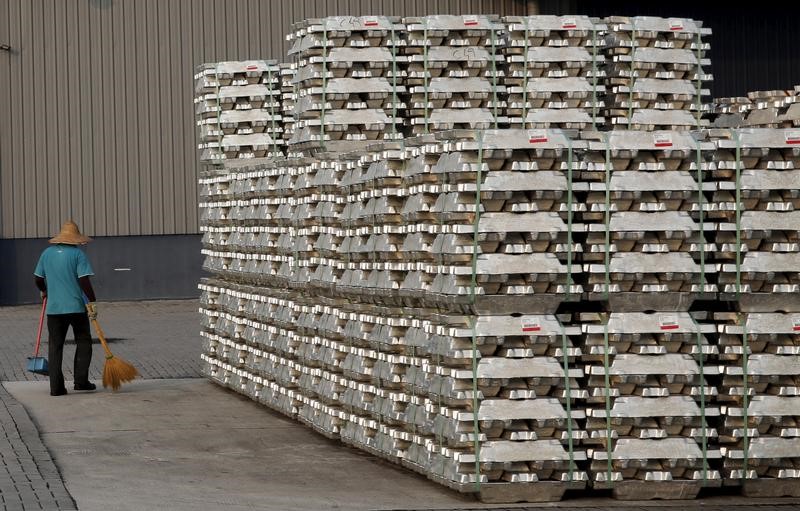By Pratima Desai
LONDON - Acting head Matt Chamberlain is fast emerging as the frontrunner to permanently take the reins at the London Metal Exchange, with industry insiders saying he has the skills, experience and knowledge to resolve a conflict with members and grow volumes.
Sources close to the matter say Chamberlain is interested in the job, having stepped in temporarily following the abrupt departure of Garry Jones last month after three years at the helm of the world's largest and oldest metals market.
Chamberlain is also highly regarded by Charles Li, chief executive of parent company Hong Kong Exchanges & Clearing (HK:0388), having advised on the $2.2 billion (2 billion pounds) takeover of the 140-year old LME in 2012 while at UBS, sources say.
"Matt carries no baggage, he can communicate and respects the history of the exchange," one head of a commodity brokerage said, declining to be named. "Matt can build bridges between all the people who use the exchange directly or indirectly."
That crucial skill was honed when Chamberlain, previously head of business development, led the process of reforming the exchange's network of warehouses to cut long queues for metal waiting to leave to appease consumers and regulators.
The experience of bringing together a disparate group of people with different priorities has equipped 34-year old to resolve tensions with members created by the exchange courting high-volume funds, industry insiders said.
"They need fresh blood, someone with IT nous who is hungry, someone who has vision and a strategy. Matt is already in situ," a source at a commodity trading firm said.
"He understands the needs of all stakeholders and that the exchange needs to evolve to survive in the 21st century and that means more funds on the exchange, adding liquidity and volumes."
The LME still dominates the trading of metals such as aluminium, copper and zinc. That is unlikely to change in the near future. However, incursions into its territory from rivals such as the Shanghai Futures Exchange (ShFE) and CME Group (O:CME) have seen the LME's share of overall copper trading fall to near 60 percent from 80 percent in 2008, while for all metal traded on exchanges the numbers are 71 and 87 percent respectively.
"Liquidity is not wedded to any exchange, business development is key," a copper consumer said, adding his company was using the CME more.
The exchange's quest to attract high-volume funds and high-frequency traders (HFT) to boost liquidity has antagonised some core broking members which service consumers and producers and are already under pressure from higher fees. Their complaint about the use of super-fast computers to place large numbers of orders at lightning speed, was echoed by Michael Farmer, founding partner of commodities investment firm Red Kite Group in his speech during LME Week.
"High-frequency trading appears to have no other purpose than to make money from the trading of other participants by jumping ahead of them," Farmer said. "This does appear to me to be an unfair advantage and could be described as front running."

Front running, which is illegal, is where brokers or traders places their own orders in front of those from incoming clients that are expected to impact the price.